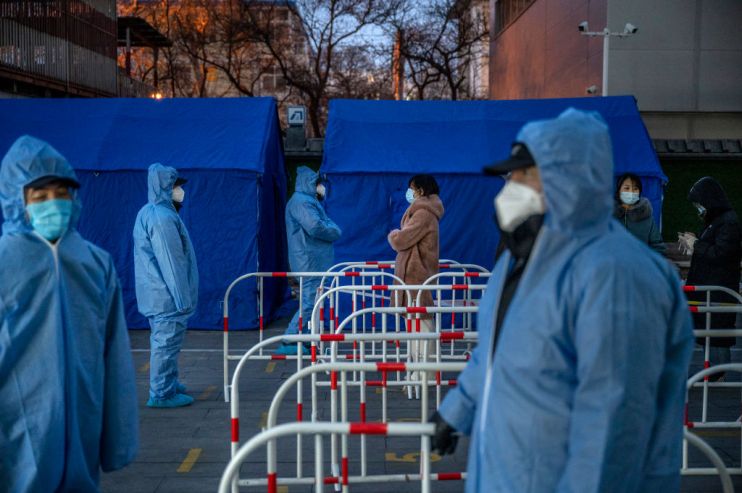China’s zero-Covid policy must be a cautionary tale for the UK

The rise in Covid-19 cases in China has seen the return of travel restrictions – but Paul Ormerod argues the scientific evidence suggests lockdowns aren’t worth the cost – only shifting cases, rather than eliminating them
As we greet the new year with the hope of more serene times ahead, some might do it with a measure of doubt and trepidation for a variety of reasons, one of them being the government’s decision to resurrect Covid-19 restrictions.
Admittedly, it is in a very limited form and only affects arrivals from China. For those coming to the UK, testing will be voluntary and the ones who test positive won’t have to self-isolate.
But it is only just over a year ago that a whole swathe of expert opinion was suggesting putting the country in yet another lockdown. The epidemiological modellers were projecting thousands of deaths a day unless restrictions were imposed with immediate effect.
Despite large and frequent errors made in overestimating the numbers of cases and deaths, the basic principles of the models which the epidemiologists operate on are scientifically sound. It is the way in which they were used that has attracted some criticism.
The experience of China illustrates the scientific validity of the epidemic models.
In the absence of a permanent shift in how people interact socially, the models show that the eventual total number of cases is not greatly affected by lockdowns: any such measures simply shift the timings of when the cases appear.
Whatever the Chinese Communist Party might say, there are already millions upon millions of Covid-19 cases in the country, and millions of deaths will follow. This is exactly what the models tell us would happen.
The Chinese political establishment is made up of experts at rewriting history. But we shouldn’t allow the same thing to happen here.
Many public health and medical professionals in the UK supported the idea of a zero-Covid-19 strategy. Politicians such as Nicola Sturgeon appeared sympathetic to the concept.
Lessons to be learnt from China’s zero-Covid policy
But as China opens up and the full consequences of the zero-Covid-19 policy become apparent to the whole world, the perception feels completely wrong.
The experts were never really in favour, and even if they were there are very good reasons why the policy was prevented from working. So, for example, Devi Sridhar, one of Sturgeon’s key scientific advisors, has claimed that the Scottish aim of “maximum suppression” of the virus was severely hampered by a lack of Scottish control over both furlough and their borders.
The consequences of lockdown are being disowned just as rapidly. Last month, for example, Chris Whitty and Patrick Vallance stated that Britain is in for a “prolonged period” of high death rates because people stayed away from the NHS during the pandemic or could not get treatment.
It cannot be stated too often that in the early summer of 2020 a number of leading economists produced reports which set out what the effects of lockdown would be.
Using a cost-benefit analysis approach, David Miles of Imperial, now at the Office for Budget Responsibility, and Bob Rowthorn, former Head of the Cambridge economics department, predicted that the costs of lockdown would have far exceeded the benefits.
Fortunately, Rishi Sunak led the opposition to the attempts to put Britain in lockdown for Christmas 2021. He was Chancellor at the time. He will need to use his now even more powerful position to lift the calls for further restrictions which risk being made as the situation in China gets worse.
